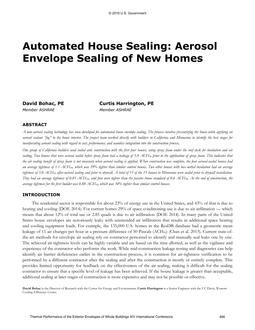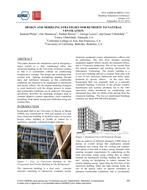The objective of this paper is to illustrate how a number of parameters influence the heating and cooling demands and energy use in shopping malls situated in cold climates. The parameters of particular interest are: lighting power, infiltration through the building envelope and entrances and the use of direct cooling (also known as free cooling). The approach includes monitoring of an existing shopping mall situated in Sweden. An extensive foundation of input data concerning the building construction, building shape, HVAC systems, internal and external heat loads and measured energy use was collected. Based on the case study shopping mall, a simulation model was developed. The model facilitates studies of the effect of parameter changes, separately and in different combinations. The results are illustrated in duration diagrams, divided between day and night conditions. An interesting combination is, for instance, future energy efficient lighting in combination with direct cooling by means of lowtemperature outdoor air supplied by ventilation systems with very low Specific Fan Power (SFP).
Studies have showed that lighting power dominates the cooling demands in shopping malls and this implies that the size of current internal loads make the energy demand less sensitive to other parameters such as the shape of the building envelope and the proportion of window facade area. However, emerging technologies for energy efficient lighting systems and the increasing awareness of the shop owners will most likely lead to drastic reduction of the cooling demands. The simulations presented in this paper illustrate the impact this will have for the overall HVAC system, especially for the possibility of utilizing direct cooling by allowing lower supply air temperatures. In the case study building, the supply air temperature is regulated depending on the heating demand between 16 °C [60.8 °F] to 20 °C [68 °F]. With modern supply air terminal devices the supply air temperature can be significantly lower. The paper not only shows the potential for future use of direct cooling in shopping malls in cold climates but also points out the requirements on ventilation system design to make direct cooling electrically as well as thermally efficient.
Product Details
- Published:
- 2012
- Number of Pages:
- 8
- File Size:
- 1 file , 2 MB
- Product Code(s):
- D-CCC12-7
- Note:
- This product is unavailable in Russia, Belarus


